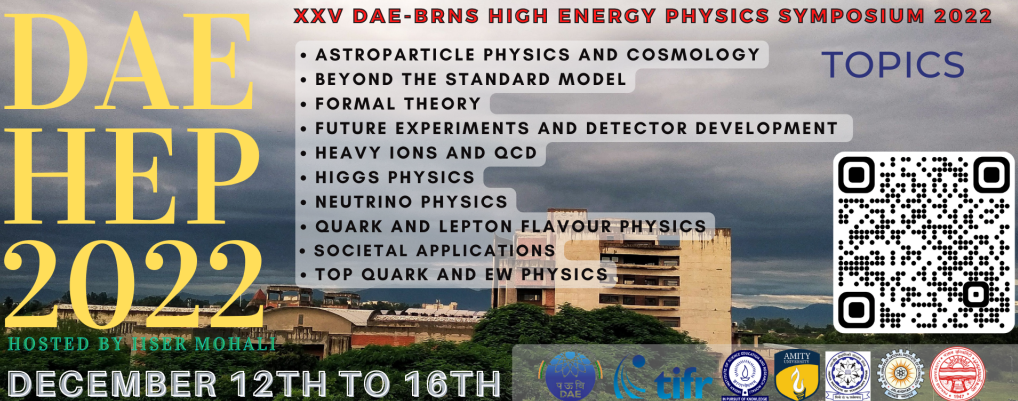Speaker
Description
Abstract: The primary ingredient for studying the phases of a quantum field theory is the effective action. Though obtaining an exact form is beyond the scope of the existing techniques, approximate expressions using perturbative methods which to the leading order involve computation of one-loop determinants are available. In the talk which is based on our paper [1], I will first describe a method for computing one-loop partition function for scalar field on thermal $AdS_{d+1}$ for arbitrary $d$ that reproduces results known in the literature. The derivation is based on the method of images and uses the eigenfunctions of the Laplacian on Euclidean $AdS$. Employing these results, I will then discuss the phases of scalar field theories in thermal $AdS_{d+1}$ spaces for $d=1,2,3$. We will analyze theories with global $O(N)$ symmetry for finite as well as large $N$. The symmetry-preserving and symmetry-breaking phases will be identified as a function of the mass-squared of the scalar field ($m^2$) and temperature ($T=1/ \beta$) in the $\beta$-$m^2$ parameter space. It will also be seen that the sign of the regularized volume of thermal $AdS_{d+1}$ plays a crucial role in the qualitative nature of the phase diagrams. As was shown for zero temperature in [2], we will confirm that for a finite temperature theory in $AdS$ there occurs a symmetry breaking phase in two dimensions, which is in contrast to the flat space where the Coleman-Mermin-Wagner theorem prohibits continuous symmetry breaking [3, 4]. We will also see that unlike the flat space, there exists a region in $AdS$ space where both the symmetry breaking and symmetry preserving phases coexist. In a particular case of $AdS^{}_{3}$ the symmetry gets broken at high temperatures.
References:
[1] A. Kakkar and S. Sarkar, "On partition functions and phases of scalars in AdS,'' JHEP 07 (2022), 089 doi:10.1007/JHEP07(2022)089 [arXiv:2201.09043 [hep-th]].
[2] T. Inami and H. Ooguri, "NAMBU-GOLDSTONE BOSONS IN CURVED SPACE-TIME,'' Phys. Lett. B 163 (1985), 101-105 doi:10.1016/0370-2693(85)90201-1
[3] N. D. Mermin and H. Wagner, "Absence of ferromagnetism or antiferromagnetism in one-dimensional or two-dimensional isotropic Heisenberg models,'' Phys. Rev. Lett. 17 (1966), 1133-1136 doi:10.1103/PhysRevLett.17.1133.
[4] S. R. Coleman, "There are no Goldstone bosons in two-dimensions,'' Commun. Math. Phys. 31 (1973), 259-264 doi:10.1007/BF01646487
| Session | Formal Theory |
|---|

